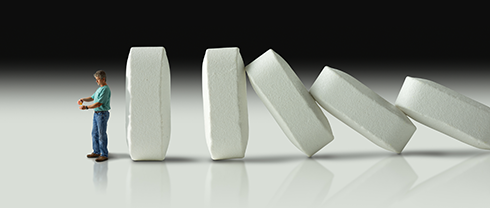 Let’s take judgment about opioids out of the picture and name it for what it really is: a public health crises. People struggling with opioid addiction (or any addiction) are people who need compassion and help, not judgment.
Let’s take judgment about opioids out of the picture and name it for what it really is: a public health crises. People struggling with opioid addiction (or any addiction) are people who need compassion and help, not judgment.
“Most people who become addicted [to opioids), like me, do so after a prescription for a painkiller following a medical procedure. Once the phenomenon of craving sets in, it is often too late,” Jaimie Lee Curtis
It’s not just the famous that are struck down with opioids. Our community has lost three hundred people since 2006. Nationwide, more than 400,000 Americans have died.
Here’s a very brief history of the opioid problem. In the 90s, companies such as Purdue Phamaceutical began heavily marketing the new pain management medications Ocycodone and then OxyContin (time-released) to physicians.
Doctors were told OxyContin was “…less prone to abuse because of its extended release formula… that only 1% of patients would become addicted.” Of course, this was a lie!
When doctors cut patients off, many turned to buying oxy or heroin on the street. (Oxy is basically prescription heroin).
I see clients, from all walks of life, every week, who want to be sober and get off these drugs permanently.
Here are standard questions I hear from clients:
“How did taking prescribed meds for pain relief lead me to an opioid problem?”
“My wife is taking 7 oxy’s a day, 3 or 4 muscle relaxers, nods off and is scaring the heck out of me. What do I do?”
“Why do I keep relapsing when I WANT to stay clean?”
“ I feel so awful in withdrawal, I relapse over and over again.”
“Where can I get treatment? The County program has a long waiting list and I don’t have private insurance.”
If you’re struggling with opioid dependence or addiction, you need to know is that help is available and sobriety is possible. A combination of treatment, medical support, 12 Step meetings, counseling, if that fits, and knowing that each day of sobriety brings your mental, emotional and physical self more back into balance.
If you decide to wean yourself, Travis Rieder’s research and experience suggests to take weaning very slowly and don’t cold turkey: “A decrease of 10% of the original dose per week, or even slower for longer term use – 10% a month,” is what he recommends.
Part of recovery from any addictive challenge is to learn how to deal with the stress and anxiety that is part of life, but we don’t all learn the skills to effectively deal. Intentional JOY provides fast-acting, mind-body skills that break the stress/anxiety cycle and put you back in charge!
